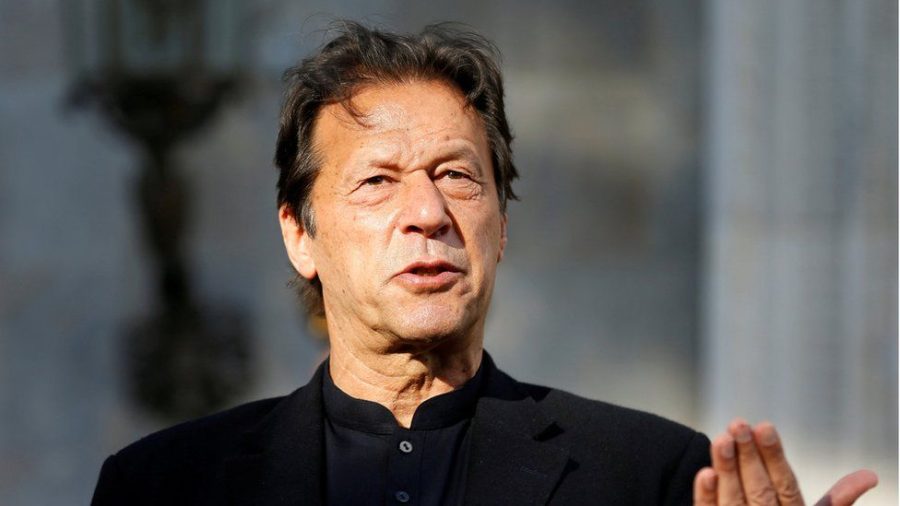In a bilateral discussion with Foreign Minister Shah Mahmood Qureshi on the sidelines of the Antalya Diplomacy Forum on Friday, Joseph Borrell, High Representative of the European Union and Vice President of the European Commission, invited Prime Minister Imran Khan to visit the EU.
The last time a Pakistani head of state, then-Prime Minister Yousuf Raza Gilani, was invited to visit the European Union was in March 2010.
The European Union-Pakistan summit, which took place on June 17, 2009, while Asif Ali Zardari was president, was the first state-level meeting in the history of Pak-EU ties.
During Prime Minister Gilani’s tenure, the second summit was place on June 4, 2010.
In October of that year, the Friends of Democratic Pakistan held a conference in Brussels.
In 2007, Prime Minister Imran Khan attended the European Parliament as a political leader, after being invited by Dr. Sajjad Karim, then a member of the European Parliament and the president of the Friends of Democratic Pakistan group in the European Parliament.
The PPP era was a period in the history of EU-Pakistan ties when relations between the two countries were at its pinnacle.
The five-year Strategic Engagement Plan, the GSP Plus regime, and the 10-year duty-free plan for Pakistan’s exports to the European Union were all signed during this time, making it a golden era for Pakistan.
Under EU-run programmes, Pakistan got significant assistance in economic activity, exports, education, and rural development as a result of such agreements. Pakistan’s positive image in Europe was enhanced by its amicable ties with the EU.
However, Pakistan has been unable to win any trade deals or concessions from the EU since 2018.
Pakistan’s most recent engagement plan was agreed in 2012, after the 2011 meeting of the Friends of Democratic Pakistan Forum. There were intentions to take ties to the next level by establishing a comprehensive strategic partnership, however Pakistan failed to qualify for the conditions of the Pak-EU Strategic Partnership Agreement on two occasions.
Pakistan was granted a second opportunity in 2019, and the agreement was renewed under the new name of the Strategic Engagement Dialogue.
The European Union has decided to maintain its engagement strategy despite numerous disagreements on national and international problems, as shown by the invitation to Pakistan’s Prime Minister.
The EU expressed concerns about media and journalist safety during a virtual meeting of the EU-Pakistan Joint Commission on June 16, and emphasized that Pakistan would have to comply by the terms and conditions of the EU-Pakistan accords.
Joint efforts in the areas of democracy, governance, rule of law, and human rights were addressed, as well as international collaboration on human rights problems and the promotion and preservation of all basic freedoms.
Both the EU and Pakistan reiterated their commitment to the promotion and preservation of all human rights and basic freedoms, including freedom of religion and belief (in light of anti-Muslim sentiment), minorities’ rights, freedom of speech, and women’s and children’s rights.
The meeting was updated on Pakistan’s progress on the Journalist and Media Protection Bill, the Forced or Involuntary Disappearance Bill, and the Anti-Torture Law.
Then, on the margins of the Antalya Diplomacy Forum in Turkey, Foreign Minister Qureshi and EU High Representative Borrell had a bilateral meeting, which included a discussion of Pakistan’s constructive contribution in Afghanistan.
Meanwhile, an exceedingly hostile atmosphere exists in Brussels, the EU headquarters, after the European Parliament’s near unanimous decision in April calling for a review of Pakistan’s GSP Plus (GSP+) status, with just 3 votes in favour and 681 votes against Pakistan.
Pakistan’s GSP+ status should be reconsidered, according to the European Parliament.
In such a turbulent period, it is commendable that Pakistan’s ambassador to the EU, Zaheer Janjua, and his staff were able to get an invitation to the EU for Pakistan’s prime minister.
PM Imran Khan would undoubtedly benefit from the visit by better understanding the nature and significance of ties with the EU.










